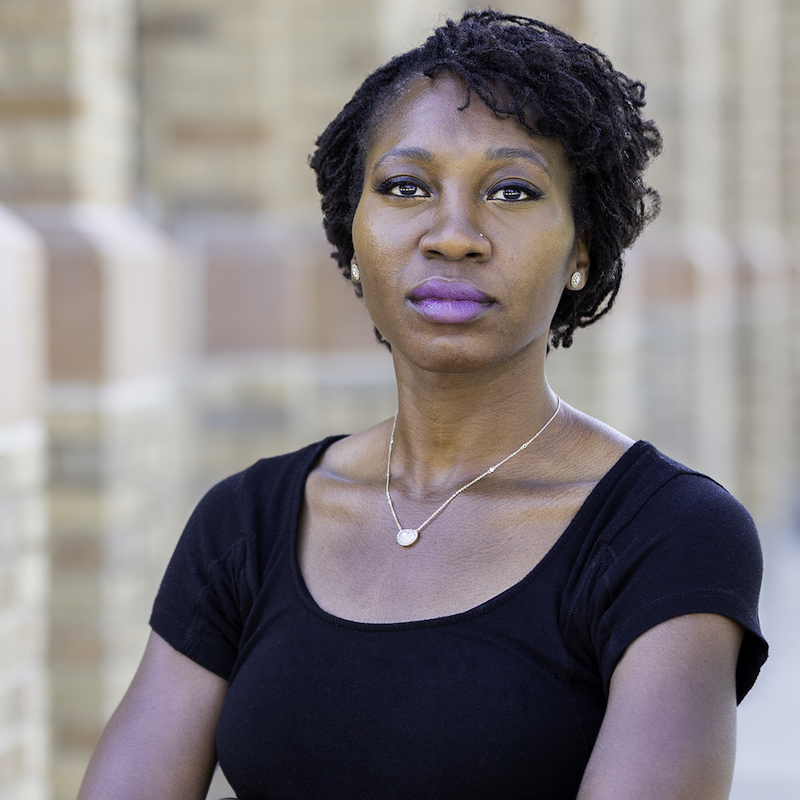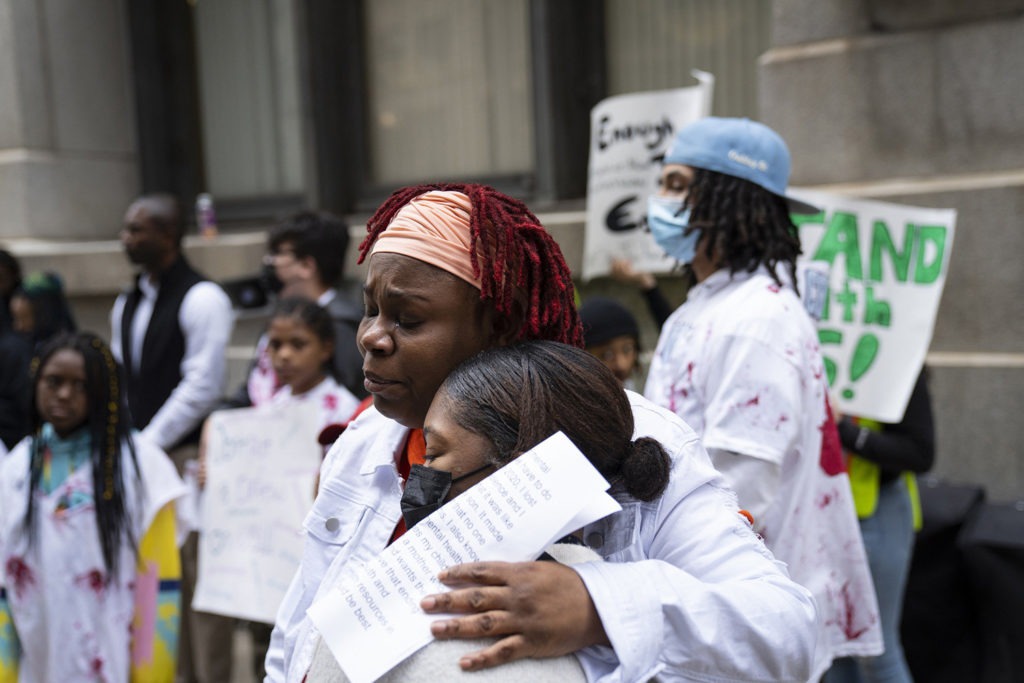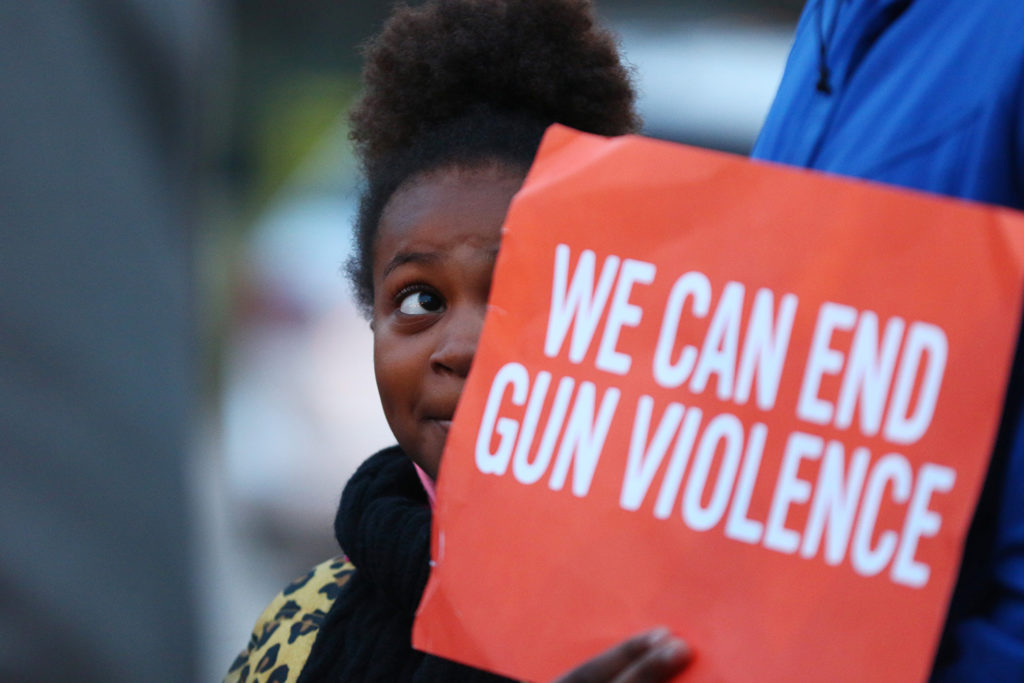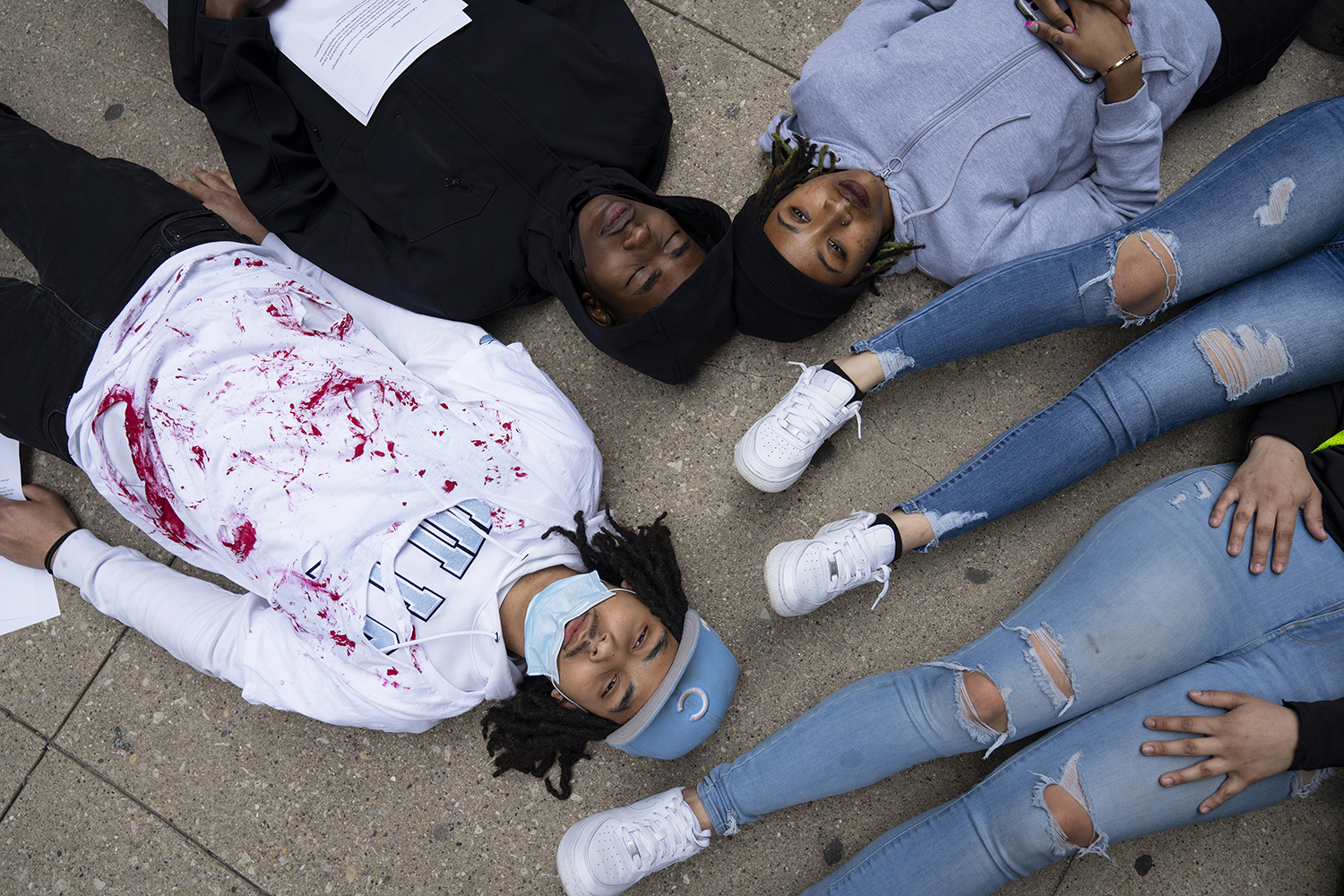In 2009 I was in my mid-20s working in the mayor’s office when I heard news that a 16-year-old named Derrion Albert had been killed near Fenger High School in the Roseland community. It was the first time I’d ever watched a death captured on video. My mind struggled to process the images of him being pummeled by other young people. Someone picked up what looked like a wooden 2-by-4 and slammed it over his head, and another person admitted to jumping on his head while he was laying on the ground. I was stunned and horrified — and that video is the reason why I never watched a filmed killing again.

City Hall’s reaction, though, was bewildering. Mayor Richard M. Daley’s first response was to place signs on bus stops and billboards announcing enforcement of a citywide curfew. At the time, I felt this was woefully inadequate and failed to address the deeper issues that had led up to Derrion’s death. As I learn of Mayor Lori Lightfoot’s response to 15-year-old Seandell Holiday’s murder at the Millennium Park Cloudgate, I can’t help but feel like it’s the same response, different year.
None of the public lamentations have addressed the elephant in the room: Curfews don’t actually work, according to a report on more than 7,000 studies on juvenile curfews by the Campbell Collaboration. Moreover, there is no short-term silver bullet that will address Chicago’s ongoing violence. This violence is Chicago’s bitter pill, and all we can do is swallow it.
Instead of being critically self-reflective about the role we’ve collectively played in creating the conditions of our current moment, there have been a chorus of (adult) voices castigating these “wayward youth” who are overrunning our cities. Yes, there most certainly is a level of personal responsibility that youth must learn — that’s part of what being young is about. And yes, if you live in a community, you should feel some sense of responsibility for what happens in your home, on your block, and in your neighborhood. Nobody gets a pass.
But teenagers don’t make policy. They are not in leadership positions. They have not decided to squander public funds on expensive pet projects. They have not decided to fritter away public taxpayer dollars on corrupt deals. They did not draw the red lines of segregation. They did not choose to allow financial institutions to ignore entire swaths of the city when it comes to private investment. They did not create the system of discriminatory home appraisals and lending discrimination that have robbed Black families of opportunities to build wealth. They did not ask the city to cut the budget for afterschool and summer programs year after year. They did not demand that city government close their schools. Yet we the adults have the audacity to point the finger to them, essentially blaming them for our collective failure.
While some may balk at this notion, the reality is that the outcomes of public policies often take years and sometimes even generations to manifest. We are now, in 2022, experiencing the fallout from the failed “Plan for Transformation” that razed Chicago’s housing projects, separated families, and disbursed people into neighborhoods that were ill-equipped to address their needs. We are now, in 2022, dealing with the second and third generation from the 1970s and 80s when communities were ravaged by the crack cocaine epidemic. That “War on Drugs” and mass incarceration via an unjust criminal legal system further divided families, destroyed community cohesion, and made economic advancement next to impossible.
We are now, in 2022, witnessing the results of the failed Renaissance 2010 initiative that divested from Chicago’s public neighborhood schools to move toward the charter school model in which only the “lucky” children could attend — unless they were lucky enough to secure a coveted spot in a selective enrollment school.

Now, in 2022, so many people in government, nonprofit and corporate sectors — many of whom were complicit in the policies that have led to our current crises — are up in arms. And the best they can offer is to blame children for being dysfunctional or wring their hands in dismay with no solutions to offer besides arresting youth if they set foot downtown without a guardian or evidence that they paid for a downtown event.
The urgency that permeates the voices of Chicago’s elected officials and leadership is interesting to see, particularly because so many of them – including many non-profit leaders — seem more interested in inviting the mayor and other politicos to their annual galas than actually challenging the status quo. So many activists have yelled into the wind about Chicago’s deeply entrenched harmful policies. The urgency was not there when we talked about the “Tale of Two Cities.” The urgency was not there when we decried the utter failure to invest financially in all parts of the city while these same leaders held press conferences lauding the 53 cranes in the sky, mainly downtown.
After much of downtown was damaged during the 2020 uprisings, after individuals have been murdered in Chicago’s swanky Oak Street, two people shot at the intersection of Chicago Avenue and State Street in the Gold Coast, and a teenager murdered at the Bean, we’re realizing that Chicago actually is not two cities — it’s one city. Now there is a level of urgency from the people who have had the ability to enact better policy all along, but never did. And unfortunately, we have to accept that we can’t enact microwave solutions for slow-cooked problems.
There is no magic bullet that will pull Chicago out of its morass. If we want to truly address Chicago’s violence, we need to look at what we as a city have done, not just this year or last year, but what we did 10, 20, and 30 years ago. We have to stop looking at someone else to blame — and we definitely have no right to blame children.
No superhuman police superintendent and no amount of billions spent on police and policing will address the generations of benign neglect of our communities and the harmful policies that erode the very fabric of our city. Too many of us did not speak up because we could conveniently ignore the “other” side of town from our tony restaurants on the Magnificent Mile. Too many of us did not push for better policies because we couldn’t afford to be on the wrong side of the alderman we wanted to invite to our event. Too many of us did not speak up because we were afraid that if we did, we would be ostracized by Chicago’s political elites. And too many of us went along and even pushed for harmful policies because we wanted to become part of the very status quo that has failed far too many. Now we’re all paying the piper: Wealthier neighborhoods are hiring their own security forces, major companies like Boeing and Citadel are leaving or threatening to leave, and the mayor is threatening to arrest youth who can’t demonstrate that they have a right to Chicago’s downtown areas.
Some may take offense to what I’ve shared, but none of us escapes public life. We go to the grocery store, to church, to school. We ride our bikes and the train. We go to the park and sometimes we visit the Bean. Any one of us could, at any time, be a victim of senseless violence. The sooner we acknowledge that reality, the sooner we can pressure leadership to enact policies that will avoid this reality in the future. But I fear that our failure to act in the past means we are stuck in this moment of reckoning.
We can only do the best we can for now, but it’s time for us to make systemic investments in our future so that subsequent generations don’t inherit our failures. The painful truth is that we may not see the results this year, next year, or the next. And responsible leadership wouldn’t give false promises of silver bullet solutions. The best and most effective solutions don’t fall neatly within the confines of an election cycle.
We need to actually invest in our public school system (not just in selective enrollment schools) so that youth have a strong academic base. We need to increase affordable youth programs and activities in park districts throughout the city so that young people can learn or hone their gifts and talents early. Instead of funneling money only to downtown-based large non-profits, we need to support small community-based organizations that are often at the frontlines of serving children and families. The business community could match young people with the many jobs available so that they can begin to develop a culture of work.

City, county, and state agencies have made some moves in the right direction by aligning their agendas and directing funding toward violence prevention efforts. We must exponentially increase investments in the current anti-violence initiatives like Communities Partnering for Peace and the Maafa Redemption Project that take a holistic approach to curbing violence at the very root. And finally, we must listen to the solutions youth themselves have to offer, such as the Peacebook Ordinance, a violence prevention proposal that was developed by Good Kids Mad City but hitherto largely ignored by city leadership.
It’s been almost 15 years since Derrion Albert was killed outside of his high school. The biggest tragedy would be that we as a city are losing our children to senseless violence 15 years from now. We can prevent that, if only we resist the false narrative that promises instant gratification and have the courage to put our heads down and drive through the storm knowing that we can make it to the other side if we persist with doing not what is politically expedient or sounds good for the Monday morning headlines, but what is right.
Amara Enyia is a strategist, social innovation and social impact professional, and public policy expert on city and state policy as well as international affairs/foreign policy. She ran for mayor in 2019.



